
The South-East Europe Women Mayors’ Forum is growing into a wonderful tradition, bringing together women mayors, presidents of municipal councils, local government associations and professionals committed to support advancing gender equality at local level. The Forum creates opportunities for women elected officials to meet each other, network, exchange, inspire each other and finally, maybe the most important, empower each other.
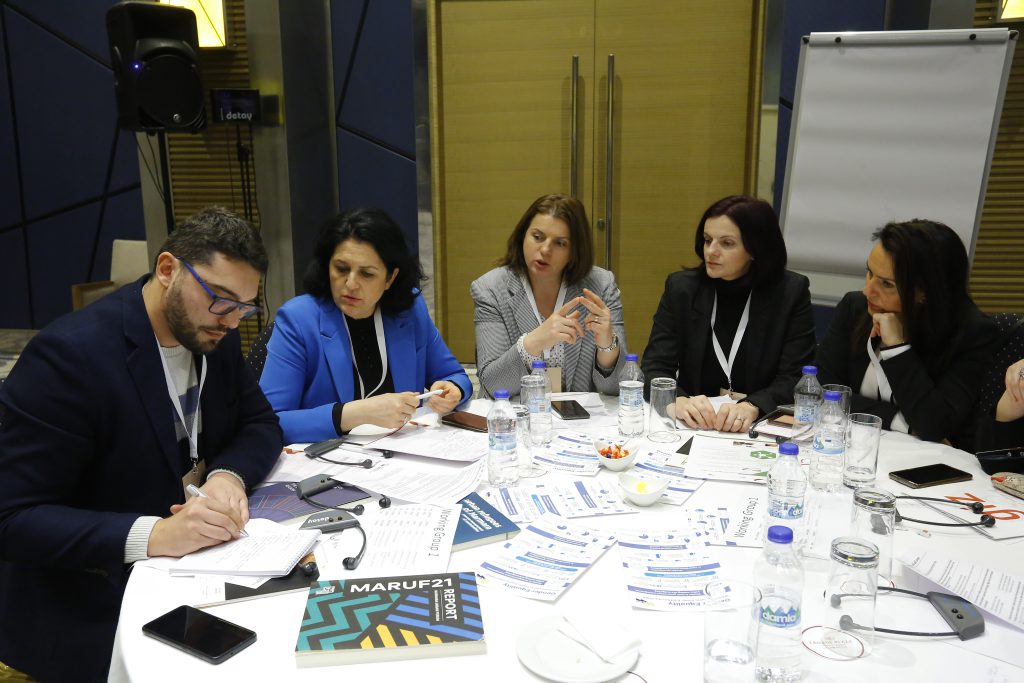
The fourth edition of the South-East Europe Women Mayors’ Forum was organised from 13 to 14 December 2022, in Istanbul, by NALAS and its member, Marmara Municipalities Union, with the support of UN Women, GIZ and KDZ.
“Local governments are such an incredibly important part of how we bring our democracy together, how we ensure that we are representing both women and men, meeting their needs and empowering them to seize their potentials and grow into leaders. But we must admit that we are not there yet”, said in his opening speech NALAS President, Mayor Goran Cvetanovic.
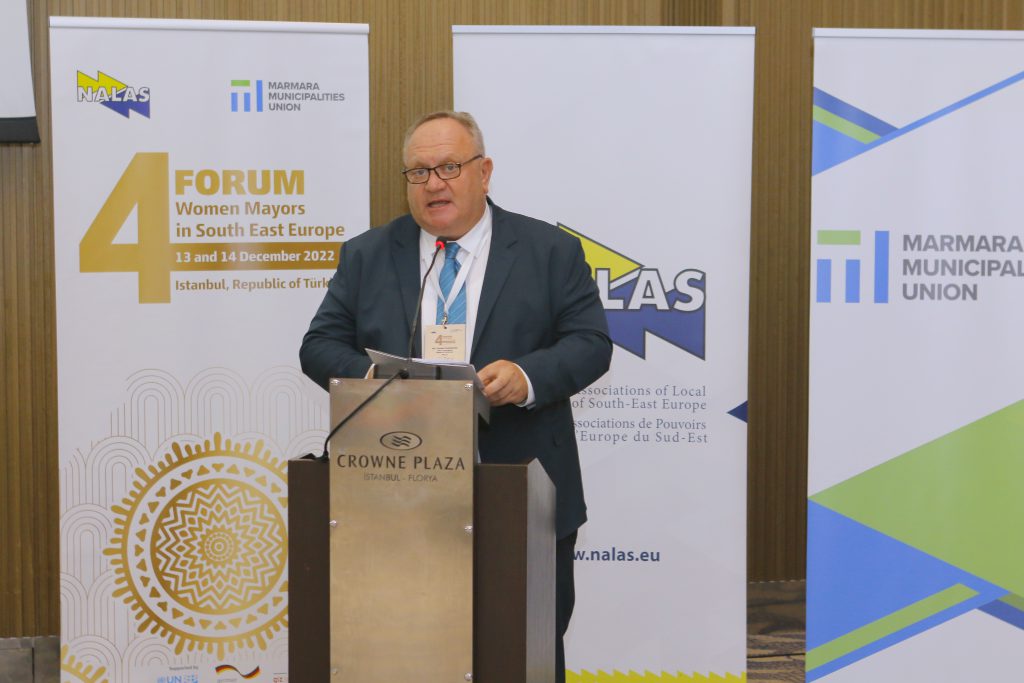
“Women remain underrepresented in central and local government. NALAS Gender Data Report which is published every two years shows that only 8,35% of South-East Europe mayors are women, while the representation of women in the municipal assemblies improves over the years and reached around 30%.
Women’s empowerment and gender equality have become priorities for sustainable development that lifts up the well-being of all global inhabitants. Achieving such far reaching, sustainable change is contingent upon the establishment of good governance – governance that is accountable, transparent, and which necessarily includes women as stakeholders in decision making processes. The incorporation of women’s voices in policy and planning would contribute to the building of local governments that allow all inhabitants to thrive equally”, said Mr. Cvetanovic.
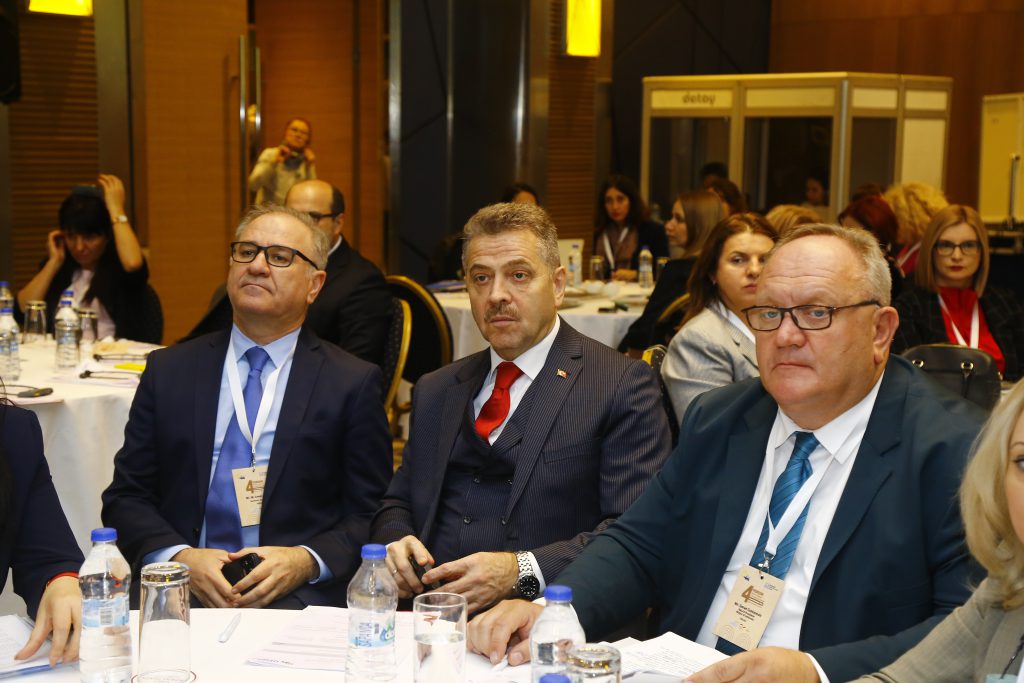
“When policies take into account the needs and priorities of different groups of women and girls, public services can be better planned – making service delivery and budgets more effective”, said Ms. Jo-Anne Bishop, Regional Director a.i, UN Women, Europe and Central Asia Regional Office.
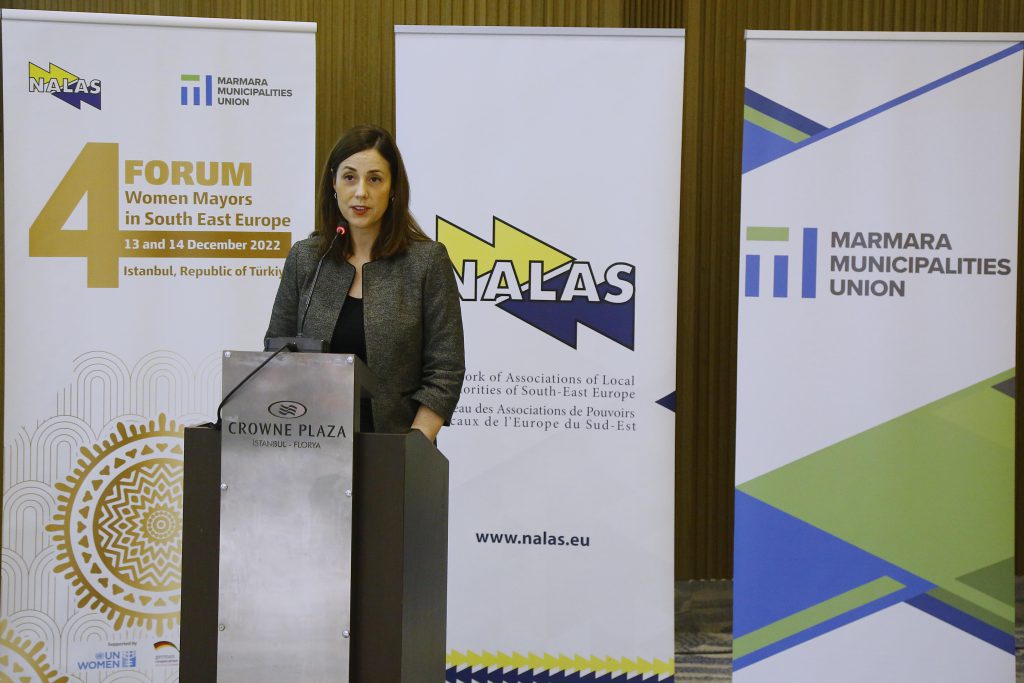
“One of our fundamental principles is “leaving no one behind”. Today global issues such as climate change, migration, pandemic further deepen the inequalities that disadvantaged groups are facing and women are the ones who are affected by these crises most. Therefore, gender disaggregated data is highly crucial to be taken into account for setting the most appropriate goals, making proper policies and putting them into action. As members of NALAS we can make a difference in this regard by learning from each other with the support of NALAS and UN Women”, said Mr. Hasan Tahsin Usta, Mayor of Gaziosmanpaşa and Member of the Executive Board of MMU.
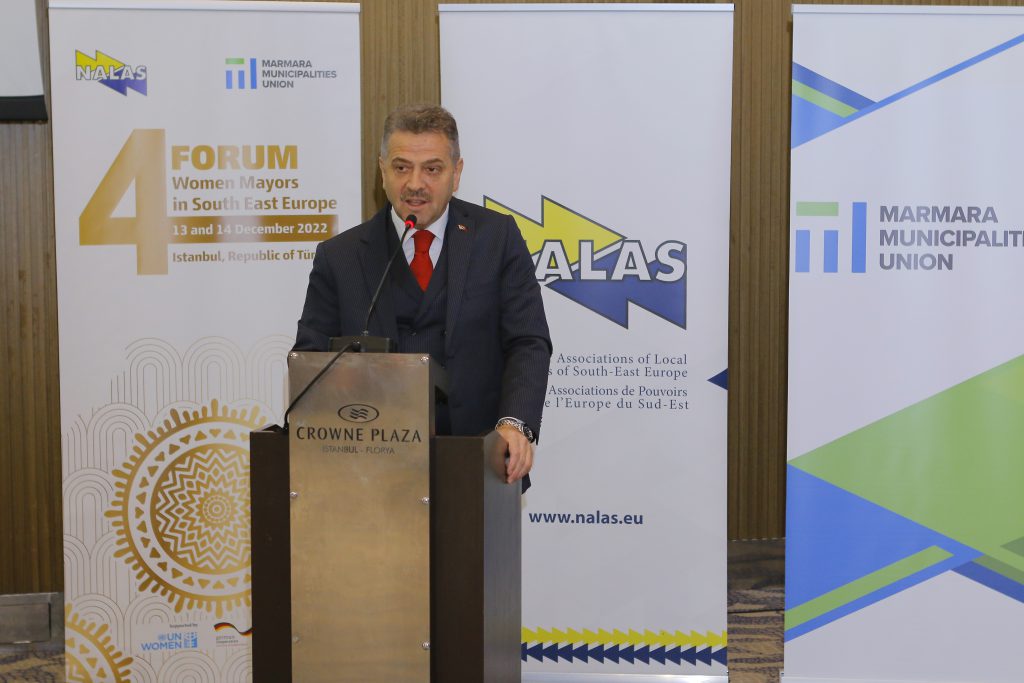
In five thematic sessions, that included 21 speakers, women elected officials had the chance to learn new concepts and exchange experiences on measures that can improve gender equality in cities and municipalities. The Forum included the following thematic sessions:
- Gender Responsive Budgeting as an approach to improve lives of women and men: the Role of Local Governments
- Women and smart cities
- Social inclusion of disadvantaged groups – women and girls
- Engendering local services
- Local Government Associations and Gender Mainstreaming – capacity for creating and implementing measures to promote equality at the local level
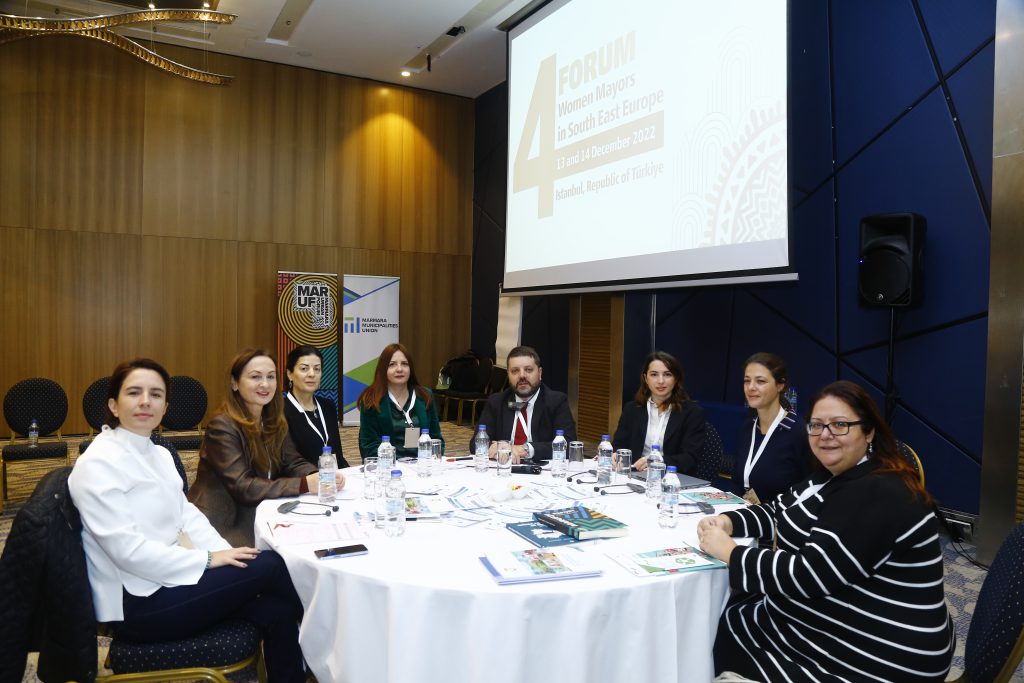
Participants heard about practices of Istanbul, Krushevac and Lushnja that improved position of girls and women by implementing gender responsive budgeting.
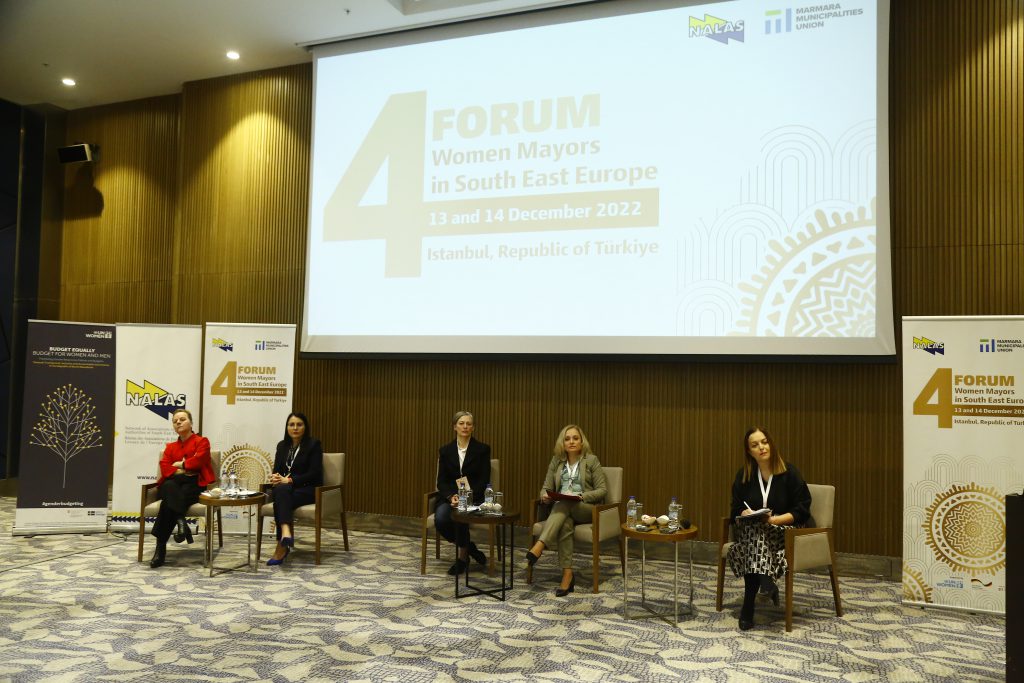
“There is no doubt that without knowing the community needs of men and women, girls and boys, without having concrete data on the beneficiaries of a budget program, we and our staff in the local administration cannot build good and effective budget program policies with a gender approach. It is just as important, however, that these statistical data are collected qualitatively, and this has really been the focus of my work so that we do not have a formal database, but rather use data as a guide to our work for the budget program with gender basis”, said Ms. Eriselda Sefa, Mayor of the Municipality of Lushnja. “A crucial aspect related to this important issue is the participation of citizens in the decision-making process. I have considered personal and institutional communication with citizens through various channels as a priority, such as continuous meetings in the field, meetings at the institution, interactivity through digital communication channels, such as social networks, and more”, said Ms. Sefa.
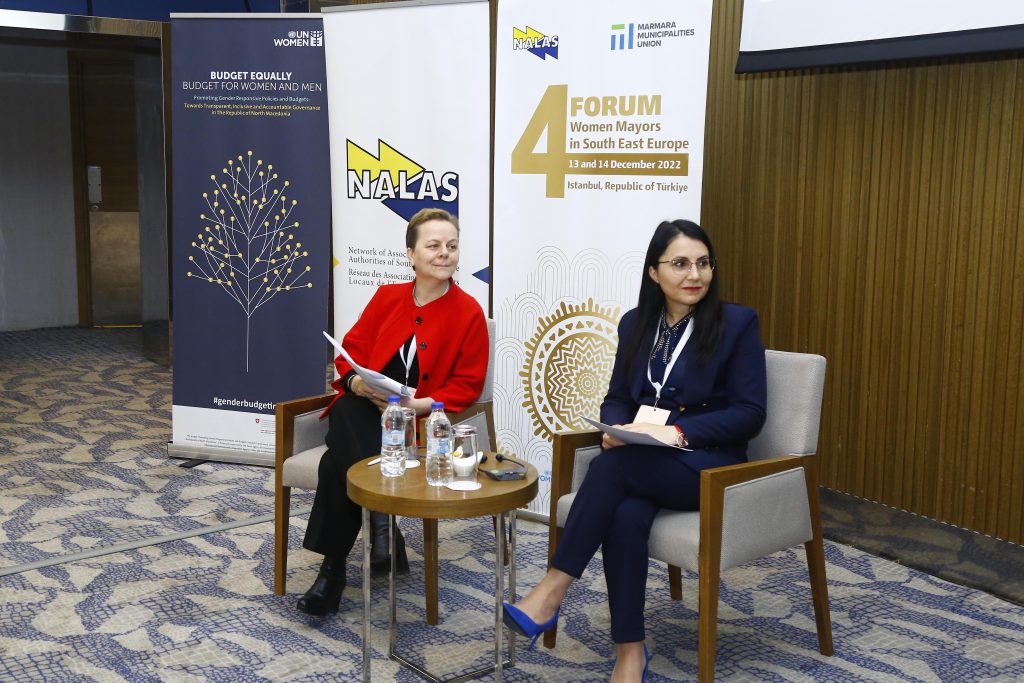
“The city is actively working on bringing the Gender Responsive Budgeting into its budget programs, in addition to applying the gender equality components to the local level public policies. With the budget programs it provided subsidies for self-employed and agricultural family farms, with a significant amount of funds committed to women”, said Ms. Jasmina Palurovic, Mayor of Krushevac.
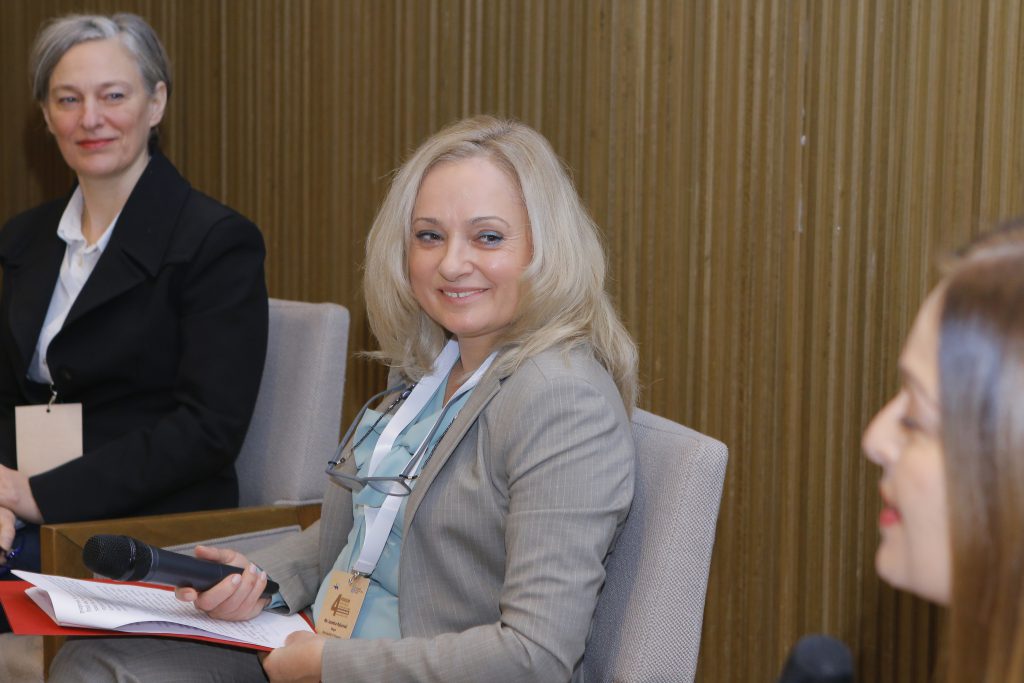
UN Women presented the SDG 5.c.1 dashboard, that measures three important components of a gender responsive public finance system:
- Intent of a government to address gender equality by identifying whether policies, programmes and resources are in place;
- Existence of mechanisms to track resource allocations towards these policy goals; and
- Existence of mechanisms to make resource allocations publicly available to increase accountability to women.
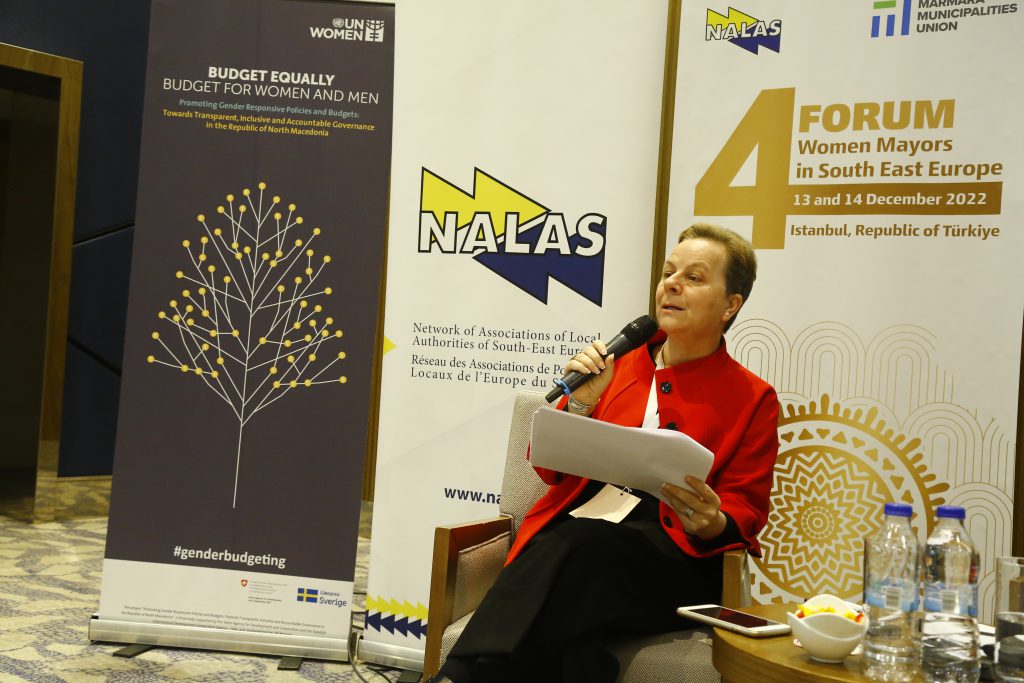
Pazaryeri and NALAS addressed the development of smart city services that improve the position and participation of girls and women, that was followed by an interactive peer exchange.
“Although there are some positive developments in the participation of women in business life, when we look at the proportion of women in the top level of management of local governments, we see that even the percentage of municipal council members is 11% in Türkiye. If we look at the general sum of top-level management in all types of local governments, this number is only 3%. This picture shows us that what we have done is not enough and we are responsible for much more”, said Ms. Zekiye Tekin, Mayor of Pazaryeri.
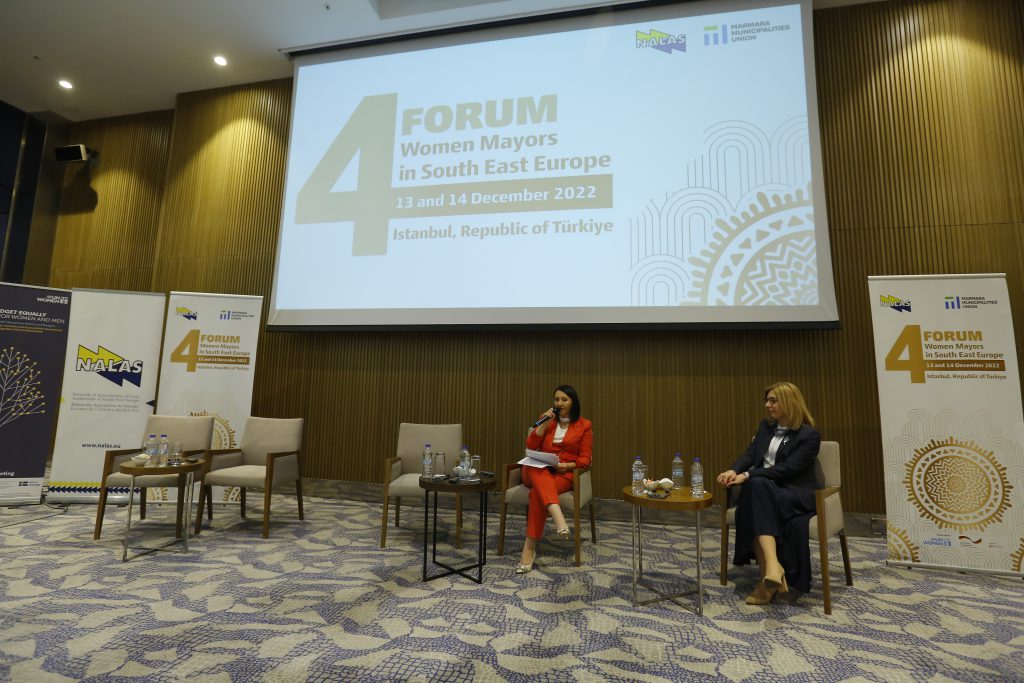
Cruzesti and GIZ elaborated on improving social inclusion of disadvantaged groups, including girls and women. “A cohesive society has close social relations, a strong feeling of connectedness and focus on the common good, as well as positive state-society relations”, said Ms. Tatjana Junuzagic, GIZ Coordinator for BiH.
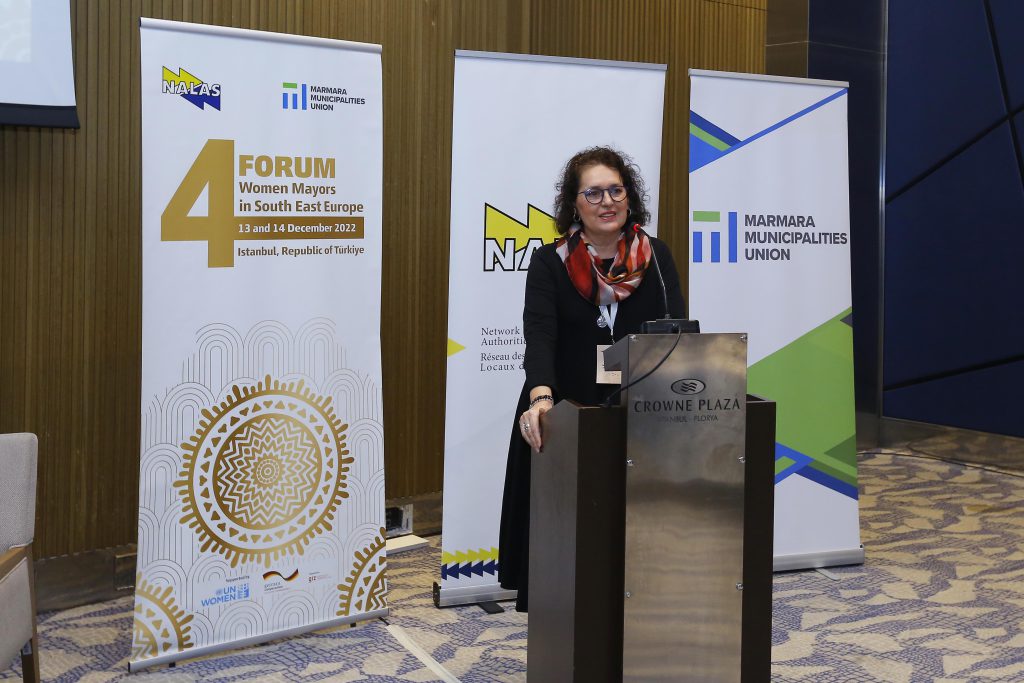
NALAS presented its methodology on engendering solid waste services and the pilot implemented in Bijeljina, followed by an interactive peer exchange on which are the priority services that need to be engendered in the cities and municipalities led by Forum’s participants.
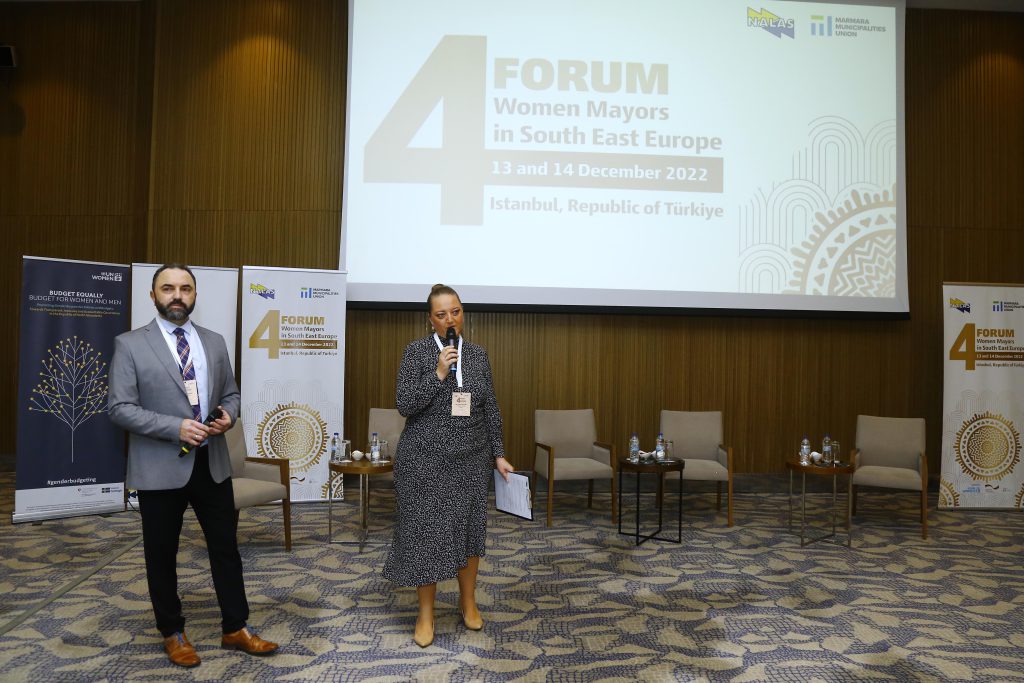
Participants got the chance to learn about the novelties of the upgraded European Charter of Equality of Women and Men in Local Life, as well as the intersectionality guide, both by the Council of European Municipalities and Regions (CEMR).
NALAS member Local Government Associations, CALM, ACoR, AKM and NAMRB shared about their advocacy and capacity development work for advancing gender equality at local level. CALM spoke about their support to women mayors through their Forum of Women Mayos, but also training and motivating women from local administration to become mayors. ACoR spoke about their League of Women Mayors of Communes, but also the international visibility and recognition they give to women mayors. AKMshared the experiences of ensuring gender equality in its organisational structures and the important role of its Training Centre programmes. NAMRB elaborated on its prominent role in intergovernmental dialogue.
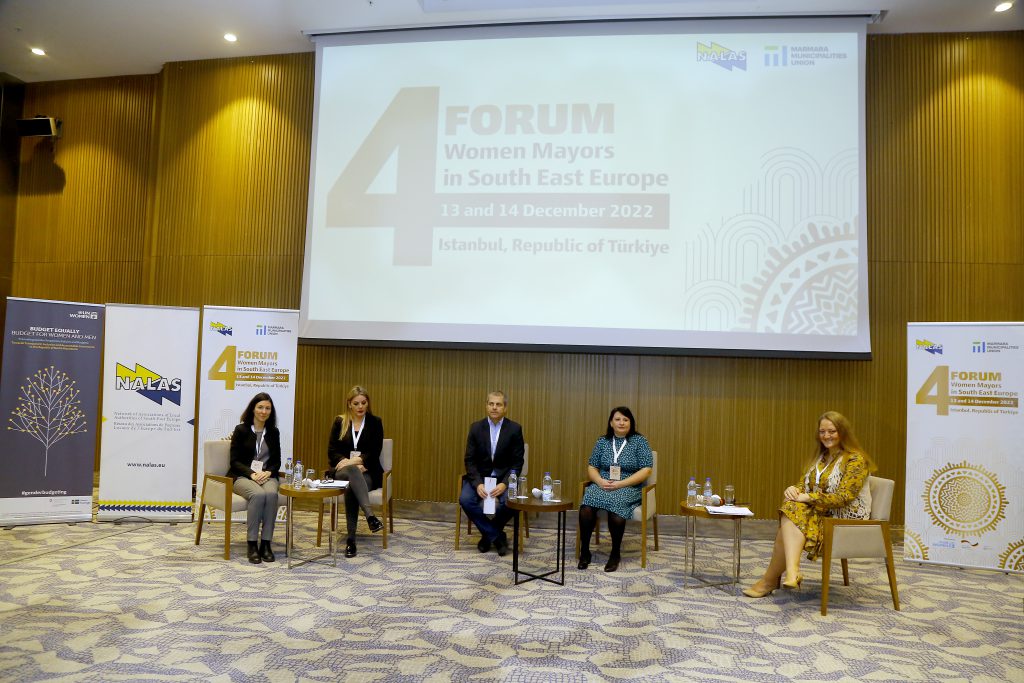
“We have exchanged good practices, inspired each other, now having a better understanding of what are the trends. But, very importantly, we are also creating trends. This is what associations are about”, said in his closing speech Mr. Kelmend Zajazi, NALAS’ Executive Director.
“We are tired of manels, I mean ‘all-male panels’. What we should all strive for is about making women’s presence, work, opinion and expertise visible”, said Mr. Cemil Arslan, MMU’s Secretary General.
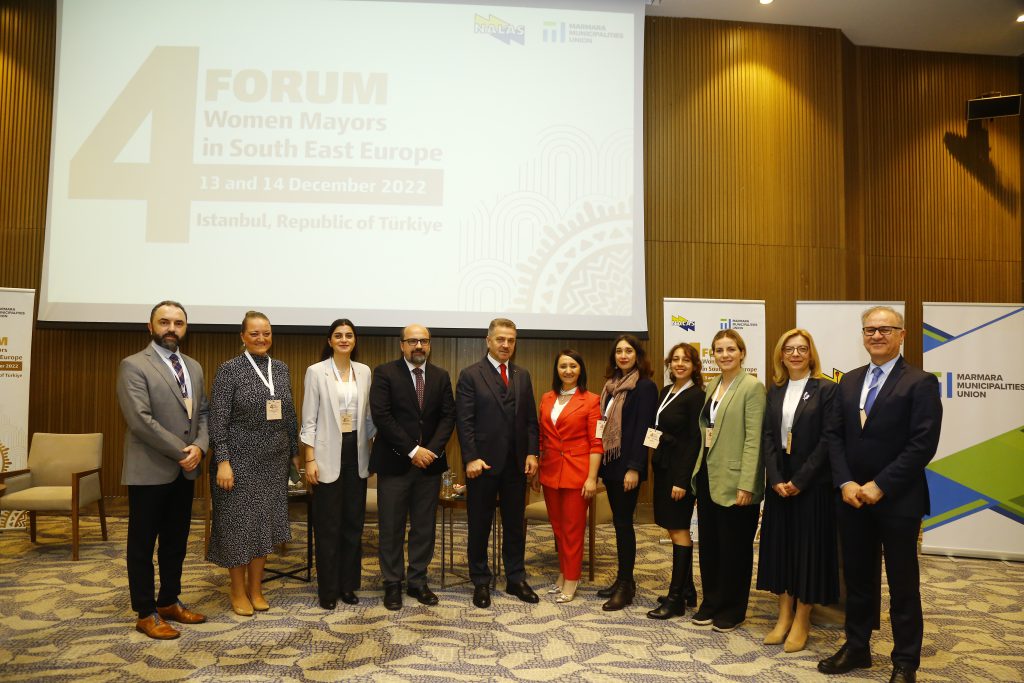
***
As of 2013, enhancing capacities, promoting and advancing gender equality at local level is one of NALAS’ strategic directions. The Network has since then pioneered number of initiatives that contribute to this, including policy positions, collections of good practices, awards for the best municipalities, e-learning course in introduction to gender mainstreaming at local level, different analyses, publications and exchanges. The South East Europe Women Mayors Forum has been established in December 2019 on the initiative of the Slovenian and Serbian Local Government Associations.